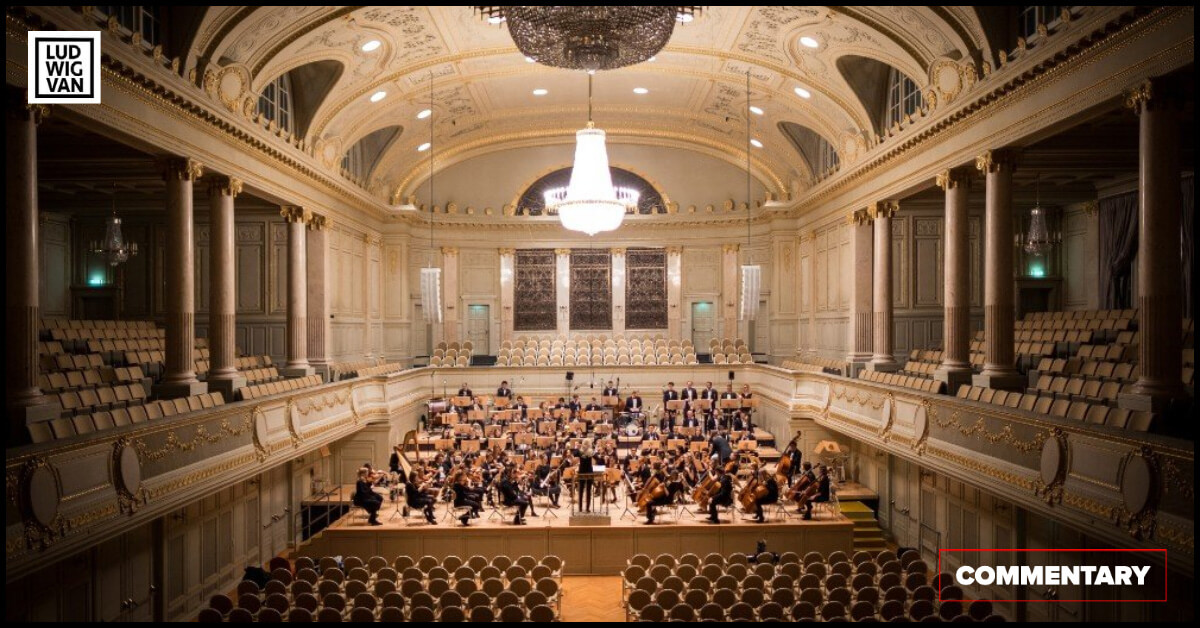Naked and afraid: Pondering the future of classical music amid COVID-19.

What do you do when an entire art form becomes a health risk?
The good news is, the classical music industry has adapted to changing market conditions before. Over the past century, it has endured the Small Pox, Cholera, and Spanish Flu.
Fast-forward to 2020, and the coronavirus has hit the events sector with the calamity of the decade (perhaps century). What initially looked like a localized pandemic isolated in China, has become a global existential crisis, stumping some of the world’s smartest viral researchers.
The most critical question is when does this pandemic end? The short answer is, it may not for a long time. Even with a global race to develop a vaccine, it may take years to develop, if ever. The SARS vaccine took 20 months. Flu vaccines are only partially effective, and an AIDS vaccine has never been found. Scientists are hard at work, but we should not wait for one to move forward.
Many of the changes facing the events industry appear to be built on the hesitation surrounding contact with the virus through touch or in its aerosolized form.
There are trends supporting the de-globalization of the arts, at least currently, and a new focus that will see digital productions grow exponentially. For example, people are leaning heavily into digital infrastructure and communicating/interacting via digital mediums. This facilitates online connectivity — at least in a memetic capacity.
So what does that change potentially look like? It’s the end of globalization, basically.
Here’s a list of predictions of what we think classical music may look like moving forward. For each, there are meaningful and economically viable models to be created to serve and support the arts industry during the adaptation period.
1. The old song ‘Rip it up and start again’ applies to sardine-seating business models not only for airlines but also theatres.
2. Live event music/opera/theatre is live cast to global subscribers and continues in refitted venues for fewer people, with multimedia camera set-ups for live streaming.
3. Arts groups will continue borrowing production methods used in the live-broadcast industry for presenting concerts online, and will lead to new creative directions in the art form.
4. Without the social community surrounding large in-person concert experiences, the donor model will shrink significantly, leading to calls for governments to step in with emergency support beyond 2021.
5. International touring productions will be reimagined via boots on the ground co-productions with locally sourced talent.
6. Audience sizes will be between 50-70% smaller, and multi-day performance runs will become the norm.
7. Some will shift to seasonal, open-air local offerings similar to those established by summer arts festivals, and will expand beyond urban centres into huge town or suburban centres.
8. Choirs will begin performing in public with specialized masks, but only in large open space venues and retrofitted churches.
9. Some large arts organizations like the Met and Berliner Philharmoniker will begin functioning more like media companies, producing entertainment and education driven formats, including interview-based programming. They will create both free and premium paid subscription arts content online.
10. The recording industry will accelerate artist development towards digital streaming on established platforms, or create their own.
11. Large music schools will become international online education centres, and new investment in technology platforms developed to facilitate them. Many schools will maintain retrofitted concert halls equipped for live-streamed performances and masterclasses. Differentiation between genres will become less important.
12. As major media outlets experience a significant drop in advertising revenue from the arts sector, there will be a decrease in mainstream arts coverage. Niche publications will increasingly fill in the gaps.
#LUDWIGVAN
Want more updates on classical music and opera news and reviews? Follow us on Facebook, Instagram or Twitter for all the latest.
- THE SCOOP | Royal Conservatory’s Dr. Peter Simon Awarded The Order Of Ontario - January 2, 2024
- THE SCOOP | Order of Canada Appointees Announced, Including Big Names From The Arts - December 29, 2023
- Ludwig Van Is Being Acquired By ZoomerMedia - June 12, 2023



